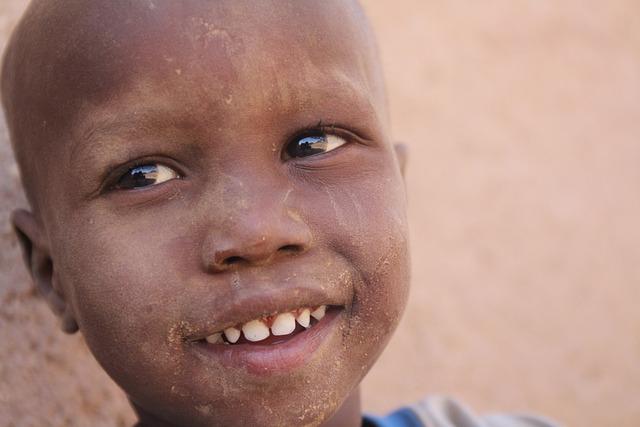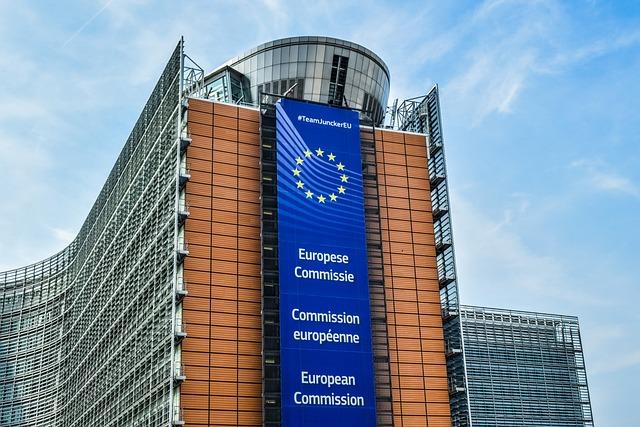In a region beset by violence and instability, the Eastern Democratic Republic of Congo (DRC) faces an escalating humanitarian crisis that demands urgent international attention. The African Union (AU), a key regional institution tasked with promoting peace and security across the continent, is at a critical juncture where decisive action is imperative. Human Rights Watch has sounded the alarm, urging the AU to respond proactively to the mounting evidence of human rights abuses and rampant lawlessness that have plagued the area for years. With millions displaced and countless lives at risk, the time is ripe for the African Union to leverage its influence and resources to foster dialog, support protection efforts, and hold perpetrators accountable. This article explores the pressing situation in Eastern DRC and highlights the necessary steps the AU must take to avert further catastrophe.
urgent Call for African Union Intervention in Eastern DR Congo
The escalating violence in Eastern Democratic Republic of Congo (DRC) demands immediate action from the African Union (AU). Over the past months, the region has witnessed a surge in armed conflicts, resulting in severe human rights violations and displacement of innocent civilians.Reports indicate that countless communities are facing atrocities such as summary executions, sexual violence, and kidnappings. despite the efforts made by various international organizations to stabilize the situation, the AU’s failure to assert its influence has left a power vacuum that insurgent groups are rapidly exploiting.
A robust response from the african Union is crucial to avert a humanitarian catastrophe. Urgent measures should include:
- Deployment of Peacekeeping Forces: Establishing a strong military presence to protect civilians and deter further violence.
- Facilitation of Dialogue: Initiating inclusive negotiations among conflicting parties to foster lasting peace.
- Strengthening Human Rights monitoring: Enhancing the capacity of human rights observers to document abuses and hold perpetrators accountable.
- Supporting Humanitarian Aid: coordinating relief efforts to assist displaced families and individuals affected by the conflict.
Such actions, combined with diplomatic pressure from regional leaders, are essential for ensuring peace and rebuilding trust among communities devastated by years of conflict.
Escalating Violence and Human Rights Violations in the Region
The ongoing turmoil in eastern Democratic Republic of congo has reached alarming levels, with rampant violence and widespread human rights abuses becoming daily realities for the local population. Reports indicate an exponential increase in brutal attacks by armed groups, targeting innocent civilians, including women and children. The dire situation is exacerbated by a lack of effective intervention, leaving communities exposed to the following threats:
- Mass killings: Armed factions are conducting systematic mass murders that instill fear in entire communities.
- Sexual violence: The use of sexual violence as a weapon of war remains pervasive, with women and girls being particularly vulnerable.
- Forced displacements: Millions have been displaced as families flee violence, leading to a humanitarian crisis.
Moreover, the persistence of military impunity has allowed perpetrators to operate without fear of accountability, further entrenching a culture of violence and oppression.The international community, particularly the African Union, is called upon to take decisive action. Considering the gravity of the situation, both diplomatic pressure and practical support for local initiatives must be prioritized. Addressing these human rights violations requires an integrated approach, which includes:
| Action Needed | Description |
|---|---|
| Immediate ceasefire | Urgent negotiations between conflicting parties to halt violence. |
| Documenting abuses | Establish autonomous bodies to investigate and document human rights violations. |
| Supporting displaced persons | Develop lasting programs to aid and resettle displaced communities. |
The Role of African Union in Promoting Peace and Security
The African Union (AU) plays a pivotal role in fostering peace and security across the continent, particularly in regions stricken by conflict and instability. Its Peace and Security Council (PSC) serves as the primary body responsible for conflict prevention,management,and resolution. The AU employs a multifaceted approach to peacekeeping that includes diplomatic negotiations, mediation initiatives, and the deployment of peace support operations. In recent years, the AU has taken notable steps to address crises in various member states, showcasing its commitment to conflict resolution.
Considering the ongoing turmoil in Eastern Democratic Republic of Congo (DR Congo), the AU must intensify its efforts to uphold human rights and stabilize the region. Some critical measures could include:
- Strengthening collaboration with regional organizations, such as the Southern african Progress Community (SADC) and the International conference on the Great Lakes Region (ICGLR).
- Enhancing the capacity of local forces through training programs and resources.
- Facilitating dialogue among conflicting parties to foster an environment of cooperation and reconciliation.
Prompt action is imperative not only to prevent further escalation of the conflict but also to safeguard the rights and lives of civilians affected by violence and insecurity.The AU’s intervention is crucial in creating a sustainable approach to peace that addresses the root causes of conflict and supports long-term stability in the region.
Recommendations for immediate Actions by African Union Leadership
The African Union must act swiftly to address the ongoing crisis in Eastern DR Congo, where escalating violence and human rights violations are undermining peace and security in the region. Immediate diplomatic efforts should be undertaken to facilitate dialogue among all parties involved, including local communities, armed groups, and government representatives. By prioritizing inclusive negotiations, the AU can definitely help foster a sustainable resolution to the conflict. Key measures should include:
- establishing a dedicated task force to monitor human rights violations and ensure accountability for perpetrators.
- Enhancing humanitarian support for displaced populations and local communities affected by violence.
- Strengthening collaboration with regional organizations such as ECOWAS to leverage collective action efforts.
Furthermore, the AU must leverage its influence to press for the cessation of hostilities and to promote the protection of civilians. This includes advocating for a thorough ceasefire agreement that all parties can adhere to, alongside concrete commitments to disarmament. An essential component of this strategy should involve:
| Action | Expected Outcome |
|---|---|
| Facilitate peace talks | Reduced violence and increased stakeholder trust |
| Implement human rights monitoring | Increased accountability and transparency |
| Mobilize international support | Enhanced resources and expertise for conflict resolution |
By adopting these recommendations, the African Union can play a crucial role in curbing the human rights abuses that plague Eastern DR Congo and pave the way for lasting peace in the region.
Supporting Local Communities and NGOs for Sustainable Solutions
In the face of ongoing violence and humanitarian crises in Eastern DR Congo, it’s crucial to galvanize support for local communities and non-governmental organizations (NGOs) that are working tirelessly to implement sustainable solutions. These grassroots efforts are pivotal in addressing not only immediate needs but also the systemic issues that perpetuate conflict and instability. By channeling resources towards locally led initiatives, stakeholders can help empower communities to build resilience and foster long-term development. Local organizations possess the cultural insights and contextual knowledge necessary to craft effective strategies that address the unique challenges faced by their communities.
To harness the potential of these local entities, the african Union and international partners must prioritize targeted support such as:
- Funding mechanisms: Allocating financial resources to small, community-driven projects that focus on peacebuilding, education, and health.
- Capacity building: Providing training programs that enhance the skills of local leaders and organizations in project management and advocacy.
- Networking opportunities: Facilitating collaborations between NGOs to share best practices and pool resources for greater impact.
Additionally, it’s essential that the African Union establishes frameworks that encourage the participation of these communities in policy-making processes. Such initiatives will ensure that interventions are not only effective but also aligned with the actual needs and aspirations of the people they aim to serve.
The Importance of International Cooperation in Addressing the Crisis
The ongoing turmoil in Eastern DR congo underscores the urgent need for a unified response from regional and international stakeholders. International cooperation enables countries to pool their resources, share intelligence, and implement comprehensive strategies to address the multifaceted issues threatening peace and stability. When nations come together, they can effectively tackle the root causes of violence, such as armed conflict, political instability, and humanitarian crises. Collaborative efforts, such as diplomatic negotiations and peacekeeping missions, can help mitigate the impact of these challenges, fostering an environment conducive to sustainable development.
Moreover, addressing human rights abuses requires a concerted effort among various international entities. The situation in Eastern DR Congo demands not only political will but also financial commitments from international partners. These alliances can be strengthened through multilateral agreements, working closely with organizations like the African Union, the United Nations, and non-governmental organizations. An effective approach might include establishing joint task forces and rapid response teams to react swiftly to emerging threats. The table below highlights potential collaboration strategies that could transform emergency responses into sustainable solutions:
| Collaboration Strategy | Expected Outcome |
|---|---|
| Multilateral Diplomatic Negotiations | Increased political stability |
| joint Humanitarian Missions | Improved access to aid |
| Coordinated Security Forces | Enhanced protection for civilians |
| Shared Intelligence Networks | Better prevention of violence |
Wrapping Up
the current crisis in Eastern Democratic Republic of the Congo demands urgent and decisive action from the African Union. With a humanitarian crisis that continues to escalate and human rights violations reported at alarming rates, the situation calls not only for immediate intervention but also for long-term strategies to foster stability and justice in the region. The African Union, as a key player in regional governance and conflict resolution, must prioritize the issue and engage with local stakeholders, international partners, and civil society organizations to develop comprehensive responses. the time for inaction has passed; the lives of countless individuals depend on a swift and coordinated effort to restore peace and uphold human rights in Eastern DR Congo. As the world watches, the African Union has an possibility to demonstrate its commitment to the protection of vulnerable populations and the promotion of lasting peace on the continent.

